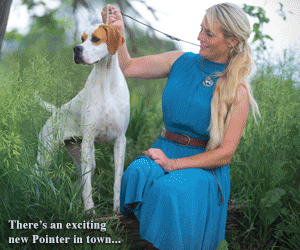Merck Animal Health Marks 25-Year Commitment to Rabies Elimination on World Rabies Day
 Milestone recognizes continued importance of dog vaccination to prevent the spread of zoonotic disease
Milestone recognizes continued importance of dog vaccination to prevent the spread of zoonotic disease
Rabies Elimination Fundamental to Merck Animal Health’s Commitment to One Health
This World Rabies Day on September 28, Merck Animal Health, a division of Merck & Co., Inc., Kenilworth, N.J., USA (NYSE:MRK), marks 25 years working to eliminate rabies and help achieve optimal health outcomes for people, animals and our environment. In partnership with Mission Rabies and Rabies Free Africa, Merck Animal Health, through the Afya Program, is celebrating this milestone by recognizing those individuals who are committed to protecting and saving canine as well as human lives.
“Protecting our dogs from rabies also means protecting ourselves from this deadly disease,” said Luke Gamble, BVSc, DVM&S, FRCVS, founder, Mission Rabies. “On this World Rabies Day, only nine years away from the World Health Organization goal of zero dog-mediated human rabies deaths by 2030, we’re calling on our generation to be the one to eliminate rabies and make this the final rabies generation.”
Each year, an estimated 59,000 people die from rabies, with over 99% of cases contracted from a dog bite.iAdditionally, 40% of those deaths occur in children 15 years and under.ii This is in part because of low rates of canine vaccination in rabies-endemic areas and a lack of awareness about the disease. To prevent rabies transmission in rabies-endemic areas, at least 70% of the dogs there need to be protected through annual mass-vaccination.iii
“Working collaboratively with Merck Animal Health, governments, health organizations and communities has helped us make substantial headway to improve health for the people and canines that share our complex and ever-changing environment,” notes Felix Lankester, DVM, Ph.D., director, Rabies Free Africa, Paul G. Allen School for Global Animal Health, Washington State University. “In fact, in the last year, there have been no reported rabies outbreaks in areas where 70% or more of the dogs have been vaccinated and no reported cases of canine rabies in the Serengeti wildlife.”
Multidisciplinary approaches are needed at the local, national and global levels to prevent, detect and respond to issues, like rabies, that interface between humans, animals and the environment. By taking a One Health approach to rabies elimination, which recognizes the challenges of population growth, increase in people living in close contact with wild and domestic animals and prevalence of internal movement of humans and animals, we can reduce the spread of rabies around the globe and achieve optimal health outcomes.
“Rabies and other zoonotic infectious diseases pose particular threats to global health security but can be managed or prevented through well-coordinated vaccination efforts,” said Ingrid Deuzeman, global marketing director, Companion Animal Vaccines, Merck Animal Health. “With well over 3 million doses of the Nobivac Rabies vaccine donated globally, Merck Animal Health remains committed to collaborating with our public and private global partners to eliminate rabies through the Afya Program, which started as a regional research project by veterinarian Sarah Cleaveland. Countless veterinarians, volunteers and dog owners are hard at work every day to prevent rabies and as we celebrate our 25-years, we must celebrate all these individuals and organizations who have worked with us to save canine and human lives.”
For example, as a commitment to rabies elimination in Phnom Penh, Cambodia, 2,100 teachers in 47 schools taught over 58,900 students rabies prevention. “When the pandemic prevented us from conducting a province-wide rabies vaccination campaign, we had to find a different way to continue to protect the community. The answer was education – rabies lessons like stopping a dog bite, rabies first aid and preventing rabies were taught across the province,” said Gamble.
While in the Mara region of Tanzania, “despite the pandemic, by collaborating with over 210 community coordinators and 60 livestock officers, we (working with the local government) carried out rabies prevention campaigns in 690 villages and vaccinated 160,000 dogs across the region,” said Lankester.
Merck Animal Health is excited to recognize our generation’s veterinarians, dog owners and volunteers through #ForThemForUs, a social media initiative. Highlighting these moments should raise awareness and encourage others to prevent rabies and save canine—and human—lives. Veterinarians, dog owners and volunteers are invited to share photos and videos of their inspirational work in keeping dogs free of rabies, using the hashtag #ForThemForUs.
About Mission Rabies
Mission Rabies was initially founded as an initiative by Worldwide Veterinary Service (WVS), a United Kingdom-based charity group that assists animals. Mission Rabies has a One Health approach driven by research to eliminate dog bite transmitted rabies (a disease that is estimated to kill 59,000 people annually). Launched in September 2013 with a mission to vaccinate 50,000 dogs against rabies across India, Mission Rabies teams have since then vaccinated 1.1 million dogs and educated more than three million children in dog bite prevention in rabies endemic countries. For more information, visit www.missionrabies.com.
Short URL: https://caninechronicle.com/?p=213348
Comments are closed












